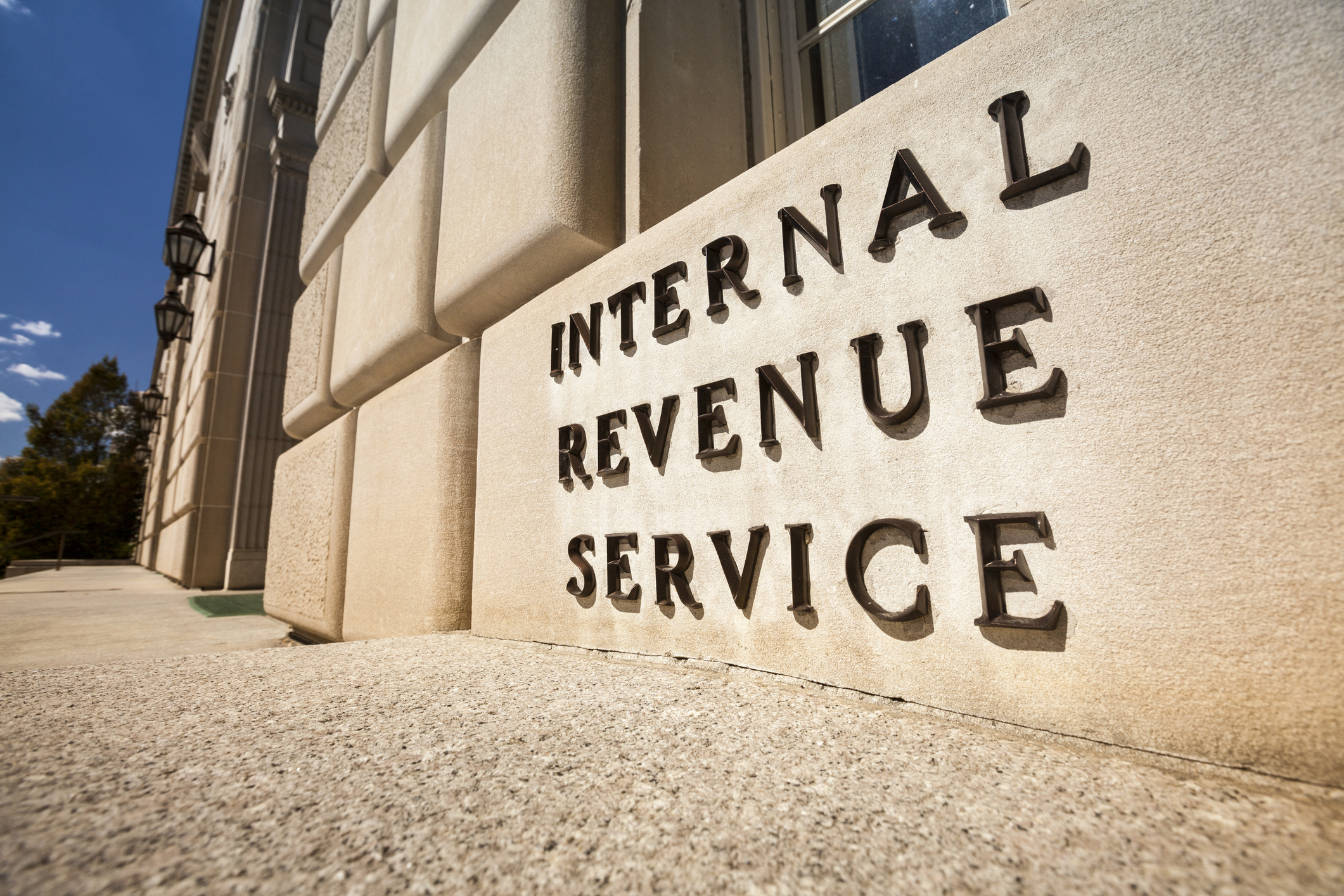IRS Exempts Maine's Energy Relief Payments from Federal Tax
The Internal Revenue Service (IRS) has declared that Maine's winter energy relief payments, amounting to $450, will not be taxed federally. This decision marks a significant turnaround following an appeal from the Mills administration.
Earlier in December, during a conversation with the Maine Department of Administrative and Financial Services, the IRS initially indicated that these payments, distributed to over 880,000 Maine residents between January and March, would be taxable. This stance prompted immediate action from the Mills administration.
Kristen Figueroa, Commissioner of the Department of Administrative and Financial Services, penned a forceful appeal to the IRS on December 12. Her letter expressed deep disappointment and concern, contrasting this decision with previous exemptions granted for pandemic-related state and federal relief efforts.
Figueroa's letter highlighted the timing of this decision as particularly troubling, coming just before the onset of Maine's harsh winter and the tax season. "On behalf of the taxpayers of the State of Maine, I am deeply disappointed by this apparent reversal and remain frustrated with the lack of clarity from the IRS," Figueroa stated.
The IRS, responding to this appeal, confirmed on Friday that the energy relief payments would indeed be exempt from federal taxes. This decision was met with praise from the Mills administration.
In a statement to NEWS CENTER Maine, an IRS spokesperson clarified, "The IRS understands the concerns of Maine residents and assures taxpayers that their state payments to lower the cost of winter energy bills are not taxable under federal law." The IRS has communicated this to Maine officials, providing clarity and an explanation on the legal nuances of this complex issue.
Governor Janet Mills and Commissioner Figueroa released a joint statement expressing their gratitude: "We are thankful to the IRS for arriving at the right decision and for their prompt response as Maine taxpayers prepare for the upcoming tax season. These payments were intended to provide financial relief to Maine people dealing with high energy prices, and we’re glad that money will stay in their pockets where it belongs.”
For more information or questions, please contact us at client@heritagetaxcompany.com or visit www.heritagetaxcompany.com.
2023 Tax Season: Impact of Potential Government Shutdown
As the United States gears up for the 2023 tax filing season, the specter of a potential government shutdown looms, presenting a significant challenge for taxpayers and the Internal Revenue Service (IRS). Lawmakers in Congress are engaged in a critical race against time to prevent this shutdown, with two pivotal deadlines on the horizon: January 19 and February 2. Failure to reach an agreement could lead to a cessation of nonessential government operations, potentially complicating and disrupting the tax filing process, as outlined by IRS Commissioner Danny Werfel.

During a recent briefing with journalists, Commissioner Werfel explained that while the IRS is legally permitted to maintain certain crucial functions even in the absence of funding, the impact of a government shutdown can be highly disruptive. He emphasized the increased risk of a less efficient filing season, a concern that grows more acute as the deadlines approach. Although efforts are underway to extend these deadlines to early March, such extensions would still leave a narrow window for Congress to broker a deal.
Personal finance experts are closely monitoring the situation, noting its implications for various tax-related matters. Among the topics under scrutiny are the bipartisan tax deal that could enhance the child tax credit for 2023, strategies for savers in 2024, including locking in Certificates of Deposit (CDs), and the qualifications for President Biden’s expedited student loan forgiveness.
The IRS, which has weathered shutdowns in the past, now faces the unprecedented prospect of such an event occurring amidst the tax filing season, according to Werfel. He assured that the IRS would exert every effort to minimize the impact of a shutdown on taxpayers.
While some tax preparers have already started accepting returns for 2023, the official commencement of the tax season is slated for January 29, the date when the IRS begins processing filings.
In the event of a shutdown, the extent to which IRS operations would be affected remains uncertain. The U.S. Department of the Treasury, in September, released a contingency plan for the IRS, outlining essential operations in the event of lapsed appropriations for fiscal 2024. However, clarity is sought regarding which IRS employees would remain active, especially during the filing season. The American Institute of CPAs (AICPA) has urged Treasury Secretary Janet Yellen and Commissioner Werfel for updates on the plan, particularly concerning filing season activities.
The potential shutdown raises concerns about IRS services like phone assistance, taxpayer centers, refund processing, paper correspondence, and automated notices. These concerns were echoed in a letter from the AICPA, which referenced interpretations from the National Taxpayer Advocate.
Should Congress fail to reach a resolution or pass a stopgap funding measure, it could significantly hinder the IRS's ongoing progress and new initiatives. Former IRS Commissioner and current Alliantgroup Vice Chairman Mark Everson pointed out the challenges posed by backlogs, such as those related to the employee retention tax credit, and the impending launch of the Direct File pilot program, a free filing initiative directly through the IRS for certain taxpayers.
Moreover, the IRS is under increasing pressure to enhance its services, following recent funding boosts and efforts by some Republican lawmakers to retract this funding. Everson remarked on the extensive list of objectives the IRS is pursuing, emphasizing the detrimental impact a shutdown could have on these efforts.
To start your journey as a tax client, you can start here.
IRS Changes Course: Tax Implications for Maine's Winter Energy Relief Checks
In an unexpected policy reversal, the Internal Revenue Service (IRS) has announced its decision to tax the Winter Energy Relief checks issued to approximately 880,000 residents of Maine. This move contradicts the IRS's earlier assurance to the state government that these funds would be tax-free, stirring significant concern and frustration among the beneficiaries.

Earlier this year, Mainers welcomed a $450 per person Winter Energy Relief payment, provided by the state to help ease the financial burden of high energy costs during the colder months. These payments, initially communicated as non-taxable, offered much-needed respite to families grappling with economic challenges.
However, the IRS's recent announcement has taken many by surprise. Residents like Marjorie Hunt from Durham express deep disappointment, pointing out how this unexpected tax demand increases their taxable income, resulting in a heftier tax bill than anticipated.
We echo the sentiments of many when we says that no one wants to pay extra tax on funds that were not only unrequested but were also meant as a relief measure. This reveals a growing sense of frustration among our clients, some of whom now regret accepting the aid due to the looming tax implications.
Despite these concerns, there are varied reactions among the recipients. A taxpayer from Brunswick, for example, believes that despite the tax, the relief payment still offers a net benefit. Yet, she and her husband are disappointed by the IRS's inconsistency, criticizing the agency for its sudden policy flip-flop.
The tax implications of this decision are not uniform and will vary depending on individual tax brackets and filing statuses. It's estimated that individuals and families could see an additional federal tax burden ranging from $50 to $200 because of these relief checks.
While the state of Maine is not taxing these payments, Governor Mills has publicly expressed a commitment to defending the interests of Mainers. The state government is actively appealing to the IRS, urging the agency to stick to its original promise of not taxing the Winter Energy Relief payments.
This situation highlights the complexities and unpredictability of tax policies, particularly when it comes to relief measures in times of economic strain. As Mainers navigate this unexpected twist, the broader conversation turns to the implications of such policy reversals on public trust and the efficacy of relief programs. Stay tuned as we continue to follow this developing story, providing insights and updates on the state's efforts and the IRS's response.
5 Essential QuickBooks Tips for Streamlining Your Finances in 2024
 January often feels like a challenging month. The festive season has ended, tax season is upon us, and our to-do lists from December seem unending. As the new year begins, we're faced with a fresh set of responsibilities.
January often feels like a challenging month. The festive season has ended, tax season is upon us, and our to-do lists from December seem unending. As the new year begins, we're faced with a fresh set of responsibilities.
While you might have kept up with essential accounting tasks in December, the start of a new month may not feel like a fresh beginning.
Enter QuickBooks – a game-changer for streamlining your financial management. Embrace 2024 with these five proactive steps using QuickBooks.
Verify Necessary Payment Deposits
First, ensure no payments are pending deposit in QuickBooks before tracking outstanding receivables. Navigate to 'Record Deposits' on the homepage, and review the 'Payments to Deposit' window. Select your payments, choose the appropriate 'Deposit To' account, and finalize the transaction.
Prioritize These Five Essential Reports
Missed invoices and bills are common in December. Kick off 2024 by assessing your financial status with these key A/R and A/P reports, and if applicable, review your inventory status.
Access these reports under the Reports menu:
- A/R Aging Detail: Identify overdue customer payments.
- Open Invoices: Review outstanding invoices.
- A/P Aging Detail: Check due and overdue bills.
- Unpaid Bills Detail: Assess your payable amounts and overdue payments.
- Inventory Stock Status by Item: Analyze detailed inventory metrics. Also, utilize QuickBooks’ Collections Report for an overview of overdue customer accounts.
Dispatch Statements
Invoices can get overlooked during the year-end rush. Instead of reissuing invoices, consider sending statements that summarize financial interactions over a period. This can be done via the 'Create Statements' option under the Customers menu.
Review Your Purchase Order Status
Ensure your vendors are on schedule with your purchase orders to avoid inventory shortages. Run the 'Open Purchase Orders Detail' report and follow up on any pending orders.
Explore Online Financial Integrations
Familiarize yourself with QuickBooks’ Bank Feeds Center for real-time banking insights. Setting up a QuickBooks Payments account can also expedite customer payments.
Aiming for a Prosperous 2024
Our goal is for you to have a successful year. QuickBooks offers comprehensive support in managing your business finances. For further assistance or to explore new features in QuickBooks, feel free to contact us.
